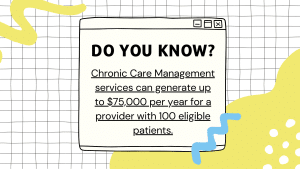Types of Mental Health Services Covered by Medicare
You’re wondering about what kinds of mental health services are covered by Medicare, you’re in the right place.
The answer might surprise you with its breadth; Medicare recognizes that mental health is a critical aspect of overall health, and therefore offers comprehensive coverage.
From inpatient treatment to outpatient counseling and prescription medications, Medicare is committed to helping beneficiaries manage their mental health.
- Inpatient care: Medicare Part A covers mental health care services you get in a hospital that require you to be admitted as an inpatient. This includes related treatments and medications administered during your stay.
- Outpatient care: Medicare Part B helps cover outpatient services such as visits to a psychiatrist or psychologist, counseling, and therapy. In addition, it also covers mental health services provided in a doctor’s office or a clinic.
- Prescription medications: Part D of Medicare covers prescription drugs that mental health professionals may prescribe to manage or treat mental health conditions.
Medicare is also inclusive when it comes to who can provide these services.
Mental health professionals such as psychiatrists, psychologists, clinical social workers, and nurse practitioners are all eligible to provide these services and bill Medicare.
Keep in mind, though, that there may be conditions and limits on these offerings. Additionally, like other Medicare services, deductibles and coinsurance may apply.
Remember, your mental health is just as important as your physical health. Don’t let uncertainty about coverage deter you from seeking the help you need. Medicare has got you covered!
Are there specific billing codes for mental health services in Medicare?
Yes, indeed, Medicare uses specific billing codes for mental health services.
These codes are part of the system known as Current Procedural Terminology (CPT), commonly used across the healthcare sector.
The CPT codes denote the type of service provided and allow Medicare to process and reimburse appropriately.
CPT codes standardize billing among providers and insurers for medical, surgical, and diagnostic services.
It is important to ensure accuracy when submitting these codes, as incorrect or mismatched coding can lead to claim denials or delays in reimbursement.
Some prevalent CPT codes for mental health services under Medicare include:
| Code | Description |
|---|---|
| 90791 | Psychiatric Diagnostic Evaluation |
| 90832-90837 | Psychotherapy (differing timeframe) |
| 96101 | Psychological Testing (by a technician) |
| 96116 | Neuropsychological Testing |
These are just a few examples of the numerous codes that exist. Each distinct service provided has a corresponding CPT code attached to it.
This ensures a smooth billing process and enables Medicare to accurately track the types and volume of mental health services provided to beneficiaries.
Furthermore, certain modifiers might need to be added to these CPT codes based on specific circumstances.
The process, while seemingly complex, is necessary to provide a standardized method of billing for a vast array of mental health services available to Medicare beneficiaries.
Providers must understand and adeptly navigate this coding system to ensure they receive correct reimbursement for their services.
Medicare covers 80% of the approved amount for mental health services after you meet the Part B deductible.
After you’ve reached your Part B deductible, you can expect Medicare to cover 80% of the mental health services you require.
This is a substantial relief, right? Now, let’s delve deeper into the specifics.
Medicare Part B broadly covers outpatient services like individual or group psychotherapy, diagnostic tests, medication management, certain preventive screenings, and a comprehensive outpatient psychiatric evaluation.
However, for all these services, Medicare will cover 80% of the amount that they have approved.
Now, what does this mean for you, your pocket, and the remaining 20%? Here is where the role of supplemental insurance comes into play.
Plans like Medigap can come to your rescue to cover that remaining 20%, essentially leaving you with little to no out-of-pocket cost.
But remember, each supplemental insurance has its own terms and conditions, so it’s essential to read the fine print.
Note: The deductible for Part B is $240 for 2024, but it may vary each year.
| Medicare Part | Covered Services | % of Approved Amount Covered |
|---|---|---|
| Part A | Inpatient mental health care | Varies, typically full coverage after deductible |
| Part B | Outpatient mental health care | 80% |
| Supplemental Insurance (e.g., Medigap) | Remaining cost after Medicare coverage | Varies, potentially up to 100% |
Step-by-Step Process of Medicare Billing for Mental Health Services
Medicare billing for mental health services involves a considered step-by-step process, that ensures accurate claiming and reimbursement for healthcare professionals.
Here’s how a typical Medicare billing cycle proceeds:
- Identification of Eligibility: The first step involves checking the eligibility of the patient for Medicare. This is essential to avoid denial of claims later on. Eligibility checks should include confirming the patient’s enrollment in Medicare, the validity of their Medicare card, and if the have a deductible pending.
- Provision of Service: Once eligibility is confirmed, the provider can render the mental health services required. This could include therapy sessions, medication management, assessments, and more.
- Documentation of Service: It’s crucial to maintain thorough records of the patient’s condition, the treatments provided, and outcomes noted. This documentation feeds into the patient’s medical record and provides a clear narrative for medical reviewers during the claim’s adjudication process.
- Coding of Service: After the service provision comes the important step of coding the service. Providers use specific billing codes, such as the Current Procedural Terminology (CPT) codes, for mental health services offered. The right coding ensures proper reimbursement.
- Submission of Claim: After coding the healthcare provider submits the claim to Medicare. This typically happens electronically through a billing software or a clearinghouse.
- Processing of Claim: Medicare processes the claim and determines the approved amount for the service based on the coding. Medicare covers 80% of the approved amount. The remaining 20% would typically be covered by supplementary insurance or paid out-of-pocket by the patient.
- Receiving Payment: After processing, the Medicare provides payment to the provider directly or to the patient if they have already paid for the service. Medicare pays within 14 business days from the date of claim submission.
Each of these steps in the Medicare billing process is integral to successfully receiving payment for mental health services.
Remember, any error or omission can lead to claim denials or delays in payment.
Therefore, healthcare providers must stay vigilant about the accuracy of coding and the completeness of documentation.
Key Challenges in Medicare Billing for Mental Health Services
Navigating the complexities of Medicare billing for mental health services can be quite challenging, even for seasoned professionals.
At the outset, you may find yourself grappling with a plethora of billing codes, intricate billing processes, and stringent documentation requirements.
But don’t worry, we are here to shed some light on these challenges and help you navigate them.
Understanding Billing Codes: In the realm of mental health services, one of the most pressing challenges involves understanding and using the correct billing codes.
Medicare services come with specific codes for billing purposes.
Utilizing the wrong codes can lead to instances of denied claims or reduced reimbursements.
Note: Continuous updating your knowledge of the Medicare billing manual and keeping an eye on changes in mental health billing codes can help to prevent such issues.
As for how often a provider can bill Medicare for ongoing mental health services, there are specific intervals that must be adhered to.
With incorrect frequency of billing, claims can be delayed or declined.
Typically, for outpatient mental health services, Medicare can be billed on a session-by-session basis, provided the sessions fall within CMS rules for frequency of services.
However, frequency might vary based on the specific type of service provided and the healthcare professional delivering the service.
Let’s consider psychotherapy as an example. To optimize patient health outcomes and ensure programs are financially sustainable, Medicare requires a minimum interval of time between sessions.
A psychiatrist, for example, might be able to bill for one individual psychotherapy session per day. In contrast, group therapy sessions might allow for billing multiple sessions per week.
Remember: It’s crucial to monitor the frequency of your billing and have a clear understanding of Medicare’s billing parameters. Misunderstanding or disregarding these parameters can lead to claim rejections and financial losses.
Similarly, for services such as psychiatric diagnostic evaluations, these are typically limited to one evaluation per rolling year for a given patient.
Medicare guidelines specify that additional evaluations during the year may potentially result in billing penalties.
To ensure they are billing correctly and frequently, healthcare providers are strongly encouraged to use resources like the ICD-10-CM (International Classification of Diseases,
Tenth Revision, Clinical Modification), which provides accurate and up-to-date diagnosis codes for their patients’ mental health conditions.
In conclusion, staying updated on the complex dynamics of Medicare billing can be a daunting task.
But remember, doing so helps ensure smooth medical billing, timely payments, and ultimately, improved patient care.
Adequate Documentation: Perhaps one of the most critical aspects of the entire process is the need for proper documentation.
Medicare requires specific and comprehensive clinical documentation to verify the services provided and justify the claim.
- Consistent patient histories: Detailed and consistent patient histories must be maintained and updated with each session. They must include the patient’s symptoms, proposed treatment plan, and progress made.
- Services provided: Clear descriptions of the services provided, including the type of therapy and the duration of each session, are also essential.
- Patient response: Documentation should also cover patient response to therapy, detailing improvements or setbacks noted.
In conclusion, Medicare billing for mental health services can appear daunting initially, but understanding the intricacies of the system can demystify the process.
Remember to keep in mind the varied challenges you may encounter and plan your billing and documentation strategies accordingly.
Exploring Telehealth: Medicare and Mental Health Services in the Digital Age
We’re living in a digital age, where technology has simplified life in unimaginable ways. This blessing of technology is not limited to shopping or attending meetings virtually;
it is revolutionizing healthcare too. And yes, that includes mental health services. As you navigate your mental health journey, you might be wondering,
“Can Medicare cover telehealth services?
” Let me assure you; the answer is a resounding “yes”.
Medicare’s coverage of telehealth mental health services brings therapy to your fingertips, especially helpful during times of social distancing or if you live in a rural area.
It’s a perfect blend of care and convenience.
- Parity laws: Initially, telehealth visits were not covered to the same extent as in-person visits. However, the recent ‘parity laws’ by most states have required private insurers to cover telehealth services the same way they cover in-person services. Medicare indeed followed suit, extending the same privileges for mental health services delivered via telecommunication.
- Expanded coverage: Medicare broadened its coverage for telehealth services in response to the COVID-19 pandemic under the Coronavirus Aid, Relief, and Economic Security (CARES) Act, enabling beneficiaries to access mental health services without leaving their homes.
Most states now allow mental health providers to prescribe controlled substances via telehealth.
This is important because, until recently, providers were only allowed to prescribe controlled substances after evaluating a patient in person.
This shift to online prescription signifies a revolution in mental health services, rapidly catching up with the digital age.
With this paradigm shift, healthcare professionals can now use telehealth to provide services without actually being in the same room as their patients.
With telehealth, controlled substances can now be prescribed after a digital consultation, thus removing geographical barriers to treatment.
Implications of Telehealth for Medicare Billing
Telehealth services, including the prescribing of controlled substances, are covered by Medicare Part B.
Just like in-office services, providers are required to send a bill to Medicare, specifying the service provided using the appropriate codes.
As a provider, you are required to submit claims to Medicare for telehealth services using the Place of Service (POS) code 02 or 10. Medicare will then reimburse your claim at the same rate as an equivalent in-office service.
Remember, telehealth services are subject to the same Medicare laws, rules, and regulations as traditional services.
For instance, it’s critical to remember that controlled substances can only be prescribed during a real-time, two-way audiovisual telehealth visit.
Make sure to always stay up to date with these requirements to ensure compliance. Remember every state has it own set rules regarding prescription of controlled substances via telehealth.
Telehealth for mental health checks a lot of boxes for both providers and patients. It’s convenient and lends itself perfectly to the kinds of regular check-ins that are often necessary when managing mental health issues.
It is, however, essential to remember to factor in things like patient comfort with technology, privacy concerns, and the need to build a strong patient-provider relationship. So, it’s not a one-size-fits-all solution, but a valuable tool.
- Psychiatrists and psychiatric nurse practitioners can provide a full range of mental health services, including medication management and psychotherapy. They can use telehealth platforms to connect with patients, understand their needs, deliver diagnoses, and provide treatment plans.
- Psychologists can utilize telehealth to provide psychological testing and psychotherapy. They can also work in conjunction with psychiatrists or psychiatric nurse practitioners for integrated care, particularly when medication can be a part of the treatment plan.
- Licensed clinical social workers can provide psychotherapy or counseling services using virtual platforms. They can support patients to navigate complex feelings, improve coping skills, strengthen social relationships, and address environmental factors impacting mental health.
- Who can provide telehealth services?:
- Medicare-approved providers like psychologists, clinical social workers, nurse practitioners, physicians, and more can provide telehealth services under Medicare Part B.
Can a physician bill Medicare for mental health services?
Yes, absolutely.
Physicians are one of the key categories of healthcare professionals who can bill Medicare for mental health services.
These services are reimbursable under Part B of the Medicare program, often referred to as ‘medical insurance’. These range from outpatient mental health services, psychiatric evaluations, Medication management as well as psychotherapy sessions conducted by the physician either individually or as part of a group.
The billing process, however, requires physicians to be mindful of guidelines and steps we’ve touched on in above sections.
Can a licensed clinical social worker bill Medicare for mental health services?
Yes.
A clinical social worker is a professional in the field of social work who has an advanced degree, usually a master’s, as well as some amount of professional work experience.
They are skilled in providing different types of therapies to individuals, families, and groups.
Under the Medicare program, licensed clinical social workers are recognized as providers of mental health services. They are authorized to diagnose and provide treatment for mental illnesses.
As legitimate service providers, they are permitted to bill Medicare for the services they render to clients as long as they accept Medicare as a form of payment.
But remember, their services must be necessary from a medical standpoint and be provided under a detailed plan of care that describes the services to be given and outlines the need for those services.
Here is an indicative list:
- Psychotherapy services
- Family psychotherapy
- Group psychotherapy
- Health and behavior assessment and intervention
It’s essential to note that while licensed clinical social workers can bill Medicare, services provided by social workers who do not have clinical licensing typically are not covered.
Can a nurse practitioner bill Medicare for mental health services?
Yes, nurse practitioners or NPs can indeed bill Medicare for mental health services. Not only is it permissible, but it’s also frequently a vital link in providing vital mental health services, especially in areas where psychiatrists are scarce or unavailable.
The Centers for Medicare & Medicaid Services (CMS) recognizes the crucial role nurse practitioners play and hence, allows them to bill for these services.
So if you’re a nurse practitioner, know that your role in mental health is acknowledged and valued in this sector.
Nurse practitioners can provide and bill for psychotherapy, psychiatric therapeutic procedures, health behavior assessment and intervention, psychoanalysis, and other mental health procedures and interventions.
However, certain rules apply to the billing process that need to be followed explicitly. One such rule is the necessity for nurse practitioners to practice within the scope of their state law.
Also, every service billed to Medicare must be medically necessary and the NPs must be legally authorized to perform the services in the state where they are performed.
It’s also worth noting that like physicians, nurse practitioners can choose either to participate or not participate with Medicare.
Participating providers agree to accept assignment for all Medicare-covered services they provide, which means they agree to accept Medicare’s fee schedule amount as payment in full.
Non-participating providers can still bill Medicare, but they can charge up to 15% over Medicare’s approved amount, a cost often passed onto the patient.
Here’s a simple illustration of what services nurse practitioners can provide and bill for:
| Service | Description |
|---|---|
| Psychotherapy | Includes crisis intervention, family psychotherapy, and interactive complexity intervention services. Prior authorization may be required for some services. |
| Psychiatric therapeutic procedures | Involves services such as biofeedback, and electro sleep therapy. |
| Health Behavior Assessment | Evaluates factors that can affect the management of physical health problems, such as tobacco use, diet, and physical activity. |
| Other Mental Health Procedures | These can include a range of interventions, from early intervention services to complex psychiatric analysis. |
The key is to understand and correctly navigate the rules and billing codes to ensure reimbursement. It’s crucial to stay informed and updated on all CMS guidelines and any changes to ensure compliance and the continuity of patient services.
Can a psychologist bill Medicare for mental health services?
Yes, psychologists are eligible to bill Medicare for mental health services.
As knowledgeable professionals expertly trained in human behavior, psychologists play a pivotal role in addressing complex mental health issues.
They use evidence-based practices to diagnose and treat a variety of mental health conditions, such as anxiety, depression, eating disorders, and post-traumatic stress disorder (PTSD).
Mental health services offered by psychologists can be billed to Medicare in both inpatient and outpatient settings. These professionals provide crucial therapeutic interventions, psychological assessments, and ongoing monitoring of mental health. Let’s break down how this works.
- Initial evaluation: The mental health journey often starts with a thorough evaluation. Psychologists use this process to understand the full context of their patients’ experiences. This includes history, symptoms, and environmental factors.
- Psychological testing: Psychologists may use a range of tests to inform their diagnoses. These tests can include cognitive assessments, personality inventories, and neurodevelopmental measurements.
- Treatment planning: Once the evaluation and testing are completed, it’s time to plan a course of treatment. A treatment plan might involve psychotherapy, referral to a psychiatrist for medication management, or sometimes, a combination of both.
- Therapy sessions: Therapy, or psychotherapy, involves regular meetings with a psychologist to discuss feelings, thoughts, and behaviors. Techniques can vary widely based on the psychologist’s approach as well as the patient’s needs and preferences.
- Follow-up assessments: Mental health is not a one-time event, and neither is its treatment. Regular follow-up assessments are necessary to understand the progress of treatment and adapt the therapeutic processes as required.
Psychologists are authorized to directly bill Medicare for these services under their own National Provider Identifier (NPI) numbers.
However, they must be contracted with Medicare and accept assignment in order to receive reimbursement.
The specific billing codes used can vary based on the nature of the service provided, the diagnosis, and the setting where the service is administered.
How often can a provider bill Medicare for ongoing mental health services?
The billing frequency for ongoing mental health services is tied to the individual nature of the service provided, the course of treatment, and the patient’s condition.
In many cases, mental health professionals can bill Medicare for services on a session-by-session basis.
However, there are instances where certain services or treatments may be billed on a different timetable.
Psychotherapy, for example, can typically be billed after each session. This might mean that if a patient has weekly therapy appointments, Medicare can be billed weekly.
However, treatment plans often need to be periodically reviewed and updated; particularly in scenarios where intensive therapeutic interventions are required.
It’s advisable for providers to stay connected with the ever-changing Medicare guidelines that may affect billing procedures.
Note: Although Medicare provides coverage for many mental health services, it doesn’t cover every service. As a provider, it’s essential to verify that the services you provide are covered before billing Medicare.
For medication management services, clinicians can usually bill Medicare every time they provide a service related to managing a patient’s medication.
However, this can vary, and many providers opt to do so during regular review intervals to ensure appropriate use and effectiveness of the medication.
For services like psychiatric diagnostic evaluation, these can usually be billed at the conclusion of the evaluation process.
However, it’s essential to note that billing frequency can differ depending on the complexity of the patient’s case and the services provided.
Lastly, for mental health services rendered in a group therapy setting, professionals often bill after each group session.
Billing Medicare for group therapy requires proper documentation and separate billing codes that distinguish it from individual therapy sessions.
In summary, the frequency of billing can significantly fluctuate based on the specific circumstances and treatment Plan.
And while Medicare sets the fundamental framework for billing, providers are encouraged to familiarize themselves with the individual guidelines of their respective practices or institutions.
I hope you have enjoyed the in depth read about who can bill and to what extent, if you still have any questions feel free to reach us via e-mail support@rxcredentialing.com or you may call us 716-919-3969 at your convenience.
Thank you.
























